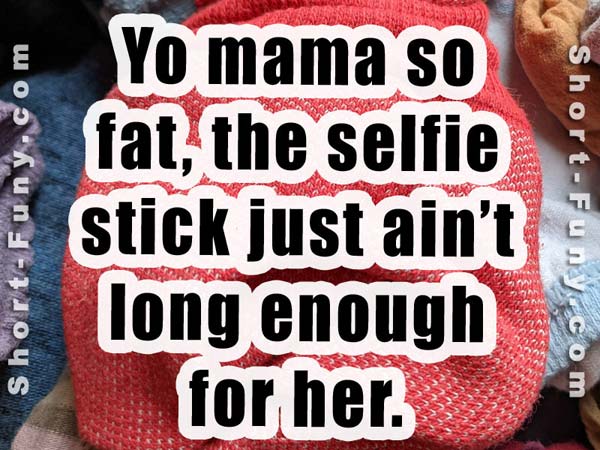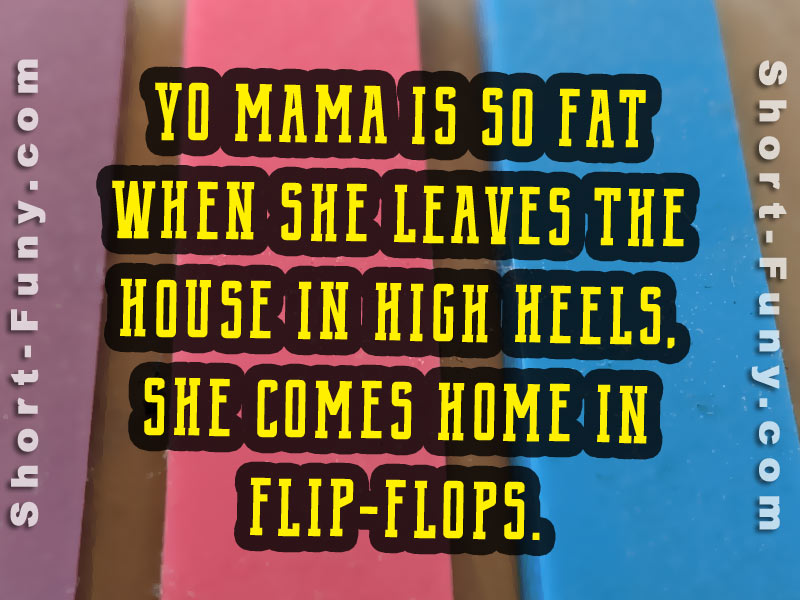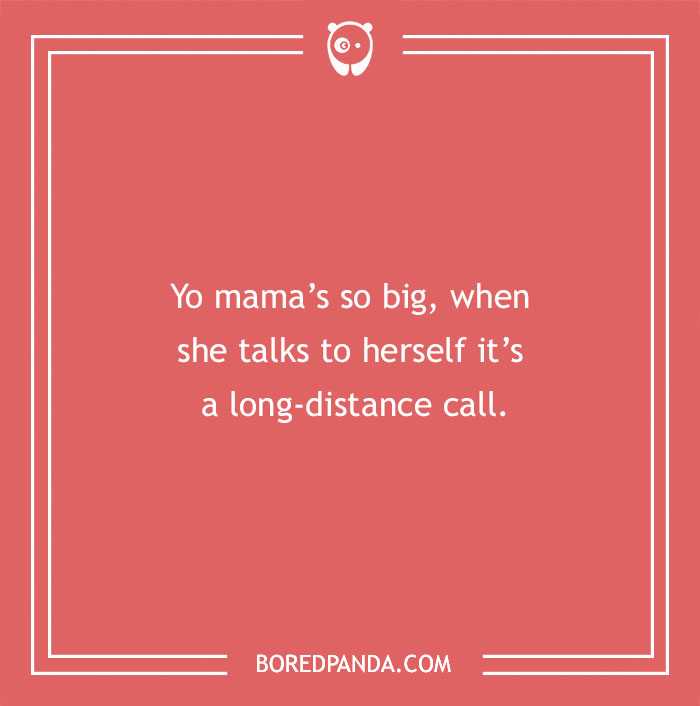The Enduring Power Of 'Yo Mama Jokes': A Cultural Deep Dive
Understanding the "Yo" in "Yo Mama Jokes"
Before dissecting the jokes themselves, it's crucial to grasp the significance of the word "yo." Far from a mere placeholder, "yo" is a powerful, albeit informal, linguistic tool. As a slang interjection, "yo" is primarily used to grab someone's attention, to greet a familiar face, or to express a strong emotion. Think of a casual "Yo, what's up?" or a surprised "Yo!" when something unexpected happens. It even finds utility in more formal, albeit niche, contexts, such as a roll call response meaning "here" or "present." The Cambridge Learner's Dictionary defines "yo" as "used especially to call attention, to indicate attentiveness, or to express affirmation." This versatility is key to its role in the "yo mama joke."The Linguistic Roots of "Yo"
The word "yo" has deep roots in North American English, gaining significant traction and widespread recognition, particularly throughout the 1990s. This era saw an explosion of rap music and culture, with rap videos dominating MTV and giving rise to iconic shows like "Yo! MTV Raps." The repetitive "yo yo yo" often heard in rap lyrics, such as "Yo yo yo baby go come on," cemented its place in the popular lexicon. This informal, often rhythmic, usage laid the groundwork for its integration into the rapid-fire delivery of "yo mama jokes." Furthermore, the adoption of "yo" in early forms of textspeak, where "you" might be abbreviated to "u" or "yo," highlights its informal and efficient nature, perfectly suited for quick, witty exchanges.The Anatomy of a "Yo Mama Joke"
At its core, a "yo mama joke" follows a remarkably consistent and predictable structure, which is part of its universal appeal. It almost always begins with the direct address "Yo mama is so..." followed by an exaggerated, often absurd, punchline that typically focuses on a perceived flaw or unusual characteristic of the target's mother. These jokes rarely rely on genuine malice; instead, their humor stems from hyperbole and the unexpected twist. Common themes include: * **Weight:** "Yo mama is so fat, when she sits around the house, she sits *around* the house." * **Poverty/Lack of Resources:** "Yo mama is so poor, she can't even afford to pay attention." * **Stupidity:** "Yo mama is so dumb, she tried to climb the Mountain Dew." * **Ugliness:** "Yo mama is so ugly, she made an onion cry." * **Age:** "Yo mama is so old, her social security number is 1." The humor in these jokes often comes from the sheer absurdity of the comparison. The punchline is designed to be outrageous, creating a mental image that is far removed from reality, thereby eliciting laughter. The simplicity of the setup allows for endless variations, making them highly adaptable and easy to create on the fly, contributing to the enduring popularity of "yo mama jokes."A Brief History of "Yo Mama Jokes"
Tracing the exact origins of "yo mama jokes" is challenging, as forms of maternal insults have existed in various cultures for centuries. However, the specific "yo mama is so..." format, as we know it today, gained significant traction in African American communities in the United States, particularly through the tradition of "the dozens." "The dozens" is a game of ritualized insult, often involving rhyming couplets, where participants trade insults, frequently targeting each other's mothers. This verbal sparring served as a way to hone wit, demonstrate verbal dexterity, and establish social hierarchy within a group, all while maintaining a playful, non-serious tone. By the mid-20th century, these jokes began to permeate mainstream American culture, particularly gaining widespread popularity throughout the 1990s. This era, as mentioned, was dominated by rap music and its associated culture, which often featured verbal battles and witty wordplay. The prevalence of "yo mama jokes" in popular media, including TV shows, movies, and stand-up comedy, solidified their place in the cultural lexicon. They became a common form of playful banter among friends, particularly among adolescents, serving as a rite of passage for many young people learning the ropes of social interaction and humor.The Cultural Impact and Social Dynamics
"Yo mama jokes" serve multiple functions within social dynamics. They are primarily a form of playful aggression, allowing individuals to engage in mock conflict without real animosity. This can be a way to establish rapport, test boundaries, or simply entertain. In many peer groups, especially among younger males, the ability to deliver a clever "yo mama joke" or to retort effectively can be a sign of social standing and quick wit. They are a form of verbal jousting, where the sharpest mind wins. However, the social dynamics are nuanced. While often harmless, the context and intent behind a "yo mama joke" are paramount. Among close friends, they can foster camaraderie and shared laughter. But in the wrong context, or delivered with genuine malice, they can be deeply offensive, crossing the line from playful banter to outright insult. Understanding the audience and the social setting is crucial to deploying "yo mama jokes" effectively and appropriately.The Art of Delivery: Timing and Context
Like any form of humor, the success of a "yo mama joke" hinges heavily on its delivery, timing, and the context in which it's told. A perfectly timed joke, delivered with a mischievous grin and an understanding nod, can bring a room to laughter. Conversely, a poorly timed joke, or one told to an unappreciative audience, can fall flat or even cause offense. The speaker's tone, body language, and the existing relationship with the listener all play a significant role. It's an unwritten rule that these jokes are typically reserved for informal settings among people who know each other well and understand the playful intent. The informal greeting "Yo," often used between people who know each other, sets the stage for this type of casual, familiar humor."Yo Mama Jokes" in Pop Culture and Media
The journey of "yo mama jokes" from street corners to mainstream media is a testament to their pervasive appeal. Their presence in pop culture is undeniable, cementing their status as a recognizable and often-referenced comedic trope. * **Television:** Beyond "Yo! MTV Raps," which highlighted the "yo" interjection and the broader rap culture that embraced these jokes, many sitcoms and animated series have featured "yo mama joke" battles or references. Shows aimed at younger audiences, in particular, often include sanitized versions of these jokes as a source of lighthearted humor. * **Movies:** From comedies to action films, "yo mama jokes" occasionally pop up as a quick gag or a way to establish a character's street smarts or comedic timing. * **Music:** As previously noted, rap music played a pivotal role in popularizing both the "yo" interjection and the "yo mama joke" format. The lyrical dexterity required for rap battles often included elements of "the dozens" and "yo mama" style insults. The repetitive "yo yo yo" in many rap tracks became synonymous with a certain urban, cool, and confident vibe. * **Video Games:** Many video games incorporate these jokes as Easter eggs, character dialogue, or even as part of mini-games, allowing players to engage in virtual insult battles.From Street Corners to Cyberspace: The Digital Evolution
The advent of the internet and social media has given "yo mama jokes" a new lease on life. Platforms like YouTube, which allow users to "upload original content, and share it all with friends, family, and the world," became fertile ground for compilations of these jokes, animated shorts, and comedic skits centered around them. YouTube's official channels help users "discover what's new & trending globally," and for a period, "yo mama joke" compilations were consistently among the trending videos. The brevity and punchiness of "yo mama jokes" make them perfectly suited for digital consumption. They thrive in comment sections, memes, and short-form video content. While the traditional face-to-face delivery remains, the digital realm has expanded their reach exponentially, ensuring that new generations continue to discover and adapt this classic form of humor. Even the use of emoticons and emojis, like the "【不屑】 ( ̄_, ̄ )" (disdainful) or "【擦】 凸" (middle finger) face, demonstrates how digital communication adds layers of non-verbal cues to these verbal jests.The Psychology Behind the Laughter
Why do "yo mama jokes" consistently elicit laughter? The answer lies in several psychological and sociological factors: * **Violation of Norms (Benign Violation Theory):** Humor often arises from a "benign violation" – something that is threatening, unsettling, or inappropriate, but in a way that is ultimately harmless. Insulting someone's mother is typically a serious taboo. By doing so in a clearly exaggerated, non-serious way, the joke violates a social norm in a "benign" context, leading to amusement. The relief from the tension of the taboo creates laughter. * **Surprise and Absurdity:** The punchlines are almost always unexpected and wildly exaggerated. The sheer absurdity of the scenarios ("Yo mama is so ugly, she made an onion cry") creates a cognitive dissonance that is resolved through laughter. * **Social Bonding:** When shared among a group, "yo mama jokes" can strengthen social bonds. Laughter is a powerful social glue, and engaging in this shared, slightly transgressive humor can create a sense of camaraderie and in-group identity. * **Release of Tension:** Humor, in general, serves as a coping mechanism and a way to release tension. The playful aggression of these jokes can provide a safe outlet for expressing minor frustrations or simply blowing off steam.Beyond the Punchline: Underlying Meanings
While seemingly simple, "yo mama jokes" can sometimes carry subtle underlying meanings. They often play on societal stereotypes, exaggerating them to the point of ridiculousness. For instance, jokes about poverty or lack of intelligence, while offensive if taken literally, are meant to be so over-the-top that they highlight the absurdity of such judgments. They can be seen as a form of social commentary, albeit a crude one, on various aspects of life, from economic disparities to perceived intellectual shortcomings, all filtered through the lens of exaggerated humor. The very act of engaging in this type of humor can also be a way for individuals to assert their own perceived cleverness or quick wit within a social setting.Navigating the Line: When "Yo Mama Jokes" Go Too Far
Despite their widespread acceptance as a form of humor, it's crucial to acknowledge that "yo mama jokes" operate on a delicate balance. The line between playful banter and genuine offense is thin and highly dependent on context, relationship, and intent. * **Audience and Relationship:** The most critical factor is the relationship between the joke-teller and the recipient. Among close friends who understand the non-serious nature of the insult, these jokes are usually fine. However, telling a "yo mama joke" to a stranger, an acquaintance, or someone who is sensitive about their family can quickly lead to conflict or hurt feelings. * **Intent:** The intent behind the joke is paramount. Is it meant to be genuinely mean-spirited, or is it a lighthearted attempt at humor? The audience can often perceive this difference, but misinterpretations are common. * **Cultural Sensitivity:** While prevalent in North American culture, the humor of "yo mama jokes" may not translate well across all cultures. What is considered playful in one context might be deeply disrespectful in another. Responsible humor means understanding these nuances. The goal of a "yo mama joke" should be shared laughter, not genuine offense. When in doubt, it's always better to err on the side of caution and choose a different form of humor.The Enduring Legacy of "Yo Mama Jokes"
The "yo mama joke" has proven its remarkable resilience, adapting to new generations and technological shifts while retaining its fundamental appeal. From the schoolyards of the past to the digital forums and social media feeds of today, these jokes continue to be a staple of informal humor. They are a testament to the human desire for playful interaction, the joy of verbal wit, and the enduring power of absurd exaggeration. As long as there are people seeking a quick laugh, a harmless way to challenge social norms, or simply a familiar cultural touchstone, "yo mama jokes" will likely persist. They are more than just punchlines; they are a vibrant, evolving part of our comedic heritage, reflecting how language, culture, and humor intertwine. What are your favorite "yo mama jokes," or your earliest memories of encountering them? Share your thoughts and experiences in the comments below, and don't forget to share this article with friends and family who appreciate a good laugh! If you enjoyed this deep dive into cultural humor, explore other articles on our site about linguistic quirks and comedic traditions.
120+ Funny Yo Mama Jokes | short-funny.com

The World's Best Yo Mama Jokes | Short-Funny.com

110 Yo Mama Jokes To Leave Your Friend Speechless | Bored Panda